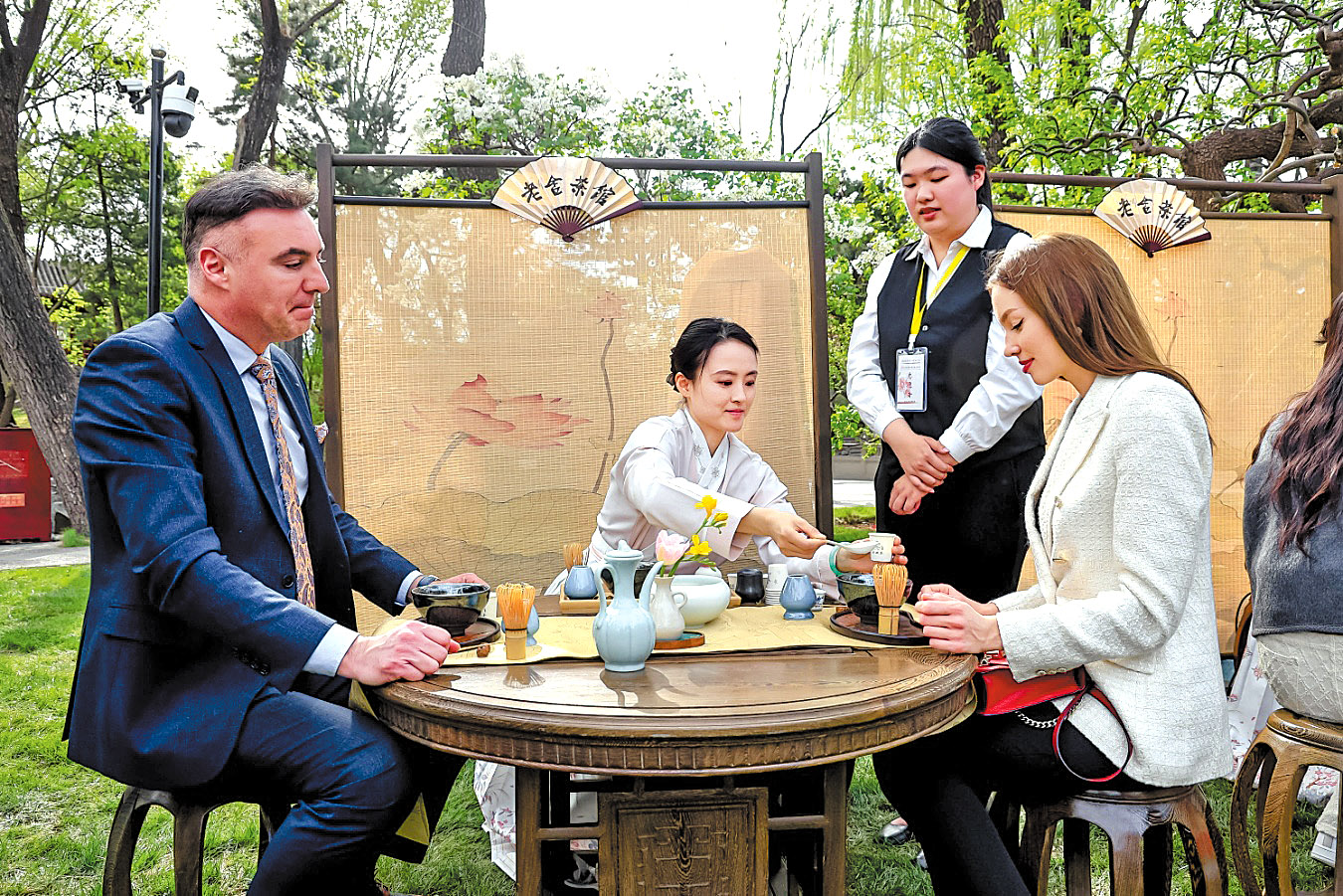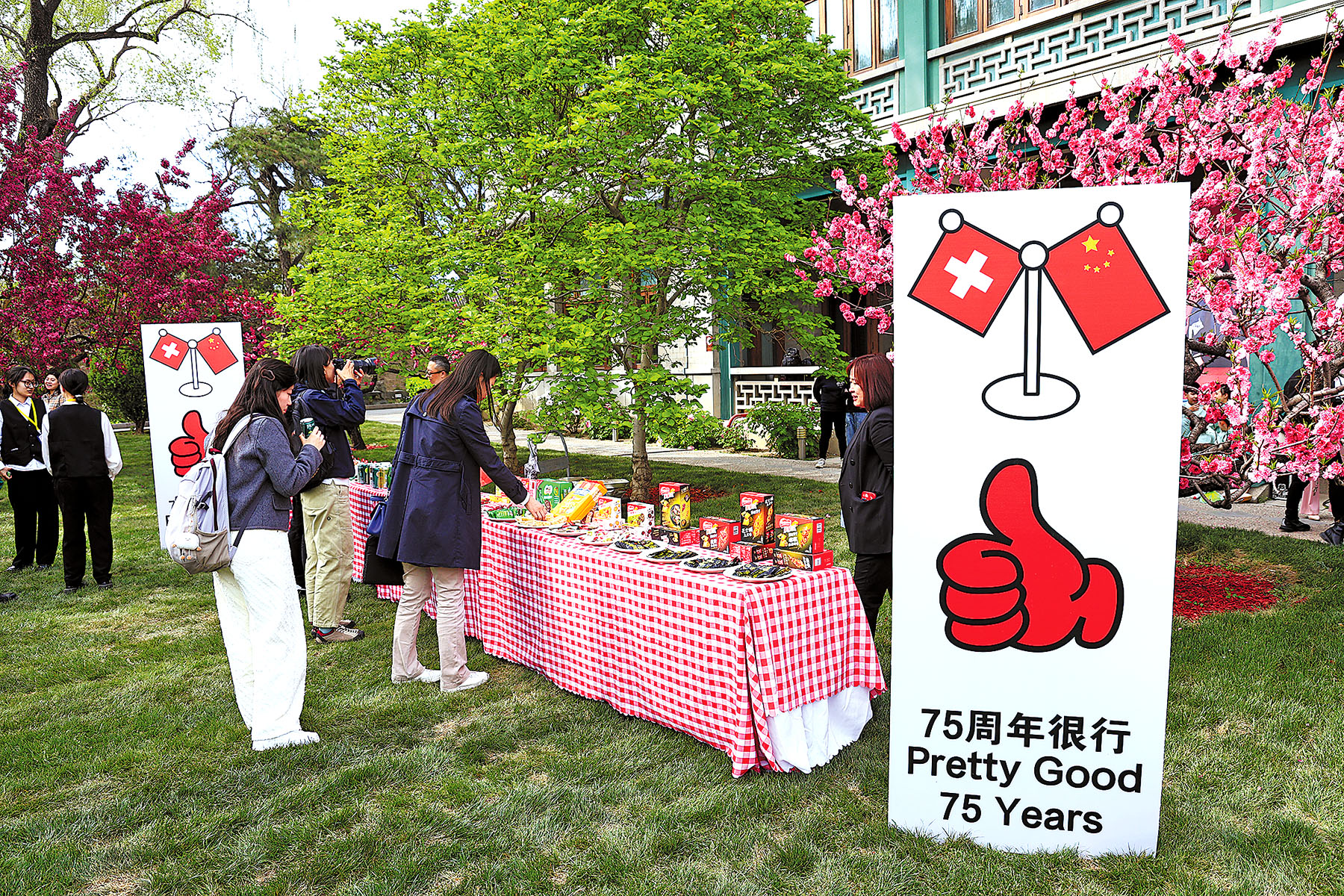
The 2025 Crabapple Gala and Crabapple Poetry Party kicked off on April 7 at the Former Residence of Soong Ching Ling, attracting diplomats and representatives from over 40 countries, including Switzerland, Turkmenistan, Portugal, Singapore, Luxembourg, Pakistan and Bulgaria.
Soong Ching Ling (1893-1981) was one of the founders of the People's Republic of China and the wife of Sun Yat-sen (1866-1925)
Amid the fragrant air, the residence was adorned with blooming crabapple blossoms, where several performances unfolded, from dance and Peking Opera to ensembles blending Chinese and Western instruments and choral recitals.
READ MORE: US students display their chops
Representatives from various countries also took to the stage to recite poems inspired by the floral theme. Among them, Michael Crook, a council member of the China Soong Ching Ling Foundation, delivered an emotional recitation of Chairman Mao Zedong's Ode to the Plum Blossom (1961) in both Chinese and English.
Reflecting on the event, Khalil Ur Rahman Hashmi, the Pakistani Ambassador to China, praises the poetry segment for its diverse languages, expressions and emotions.
"Poetry, as a universal language, serves as a powerful medium to bridge cultures, bring people together, and deepen mutual understanding," he says.

The event also featured interactive booths where guests could engage in hands-on cultural experiences such as calligraphy, painting, and tea ceremonies. Additionally, specially designed postcards for the gala were available to mail on-site.
Jurg Burri, Swiss Ambassador to China, tried his hand at tea preparation.
He shares that his most memorable cultural experiences in Beijing are the annual Spring Festival and Lantern Festival.
"I love the atmosphere with all the red lanterns at the end of winter. It's truly a special time when families gather to eat dumplings and the lanterns make the city glow red," he says.
For Beate Trankmann, the United Nations Development Programme's resident representative in China, it was her second visit to the Former Residence of Soong Ching Ling.
ALSO READ: TCM gives the Swiss a healthy option
She points out that Soong was a female leader who broke barriers. Soong became one of China's national leaders during a time when very few women rose to such positions, Trankmann says.
"She used her position to advocate for women's participation in social and political life, and also to promote women's rights.
"As a female leader myself, I feel here as a very moving place. I think her mission in life remains very important, especially in this age — a tech-dominated world where we must work to ensure women are not only included, but in a position to shape the future," she says.
xingwen@chinadaily.com.cn


